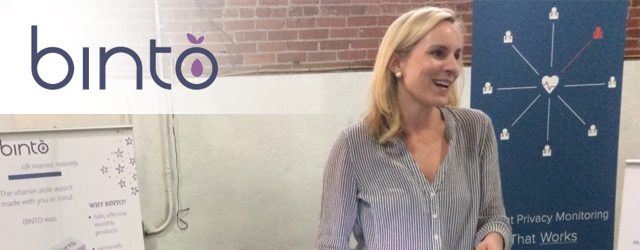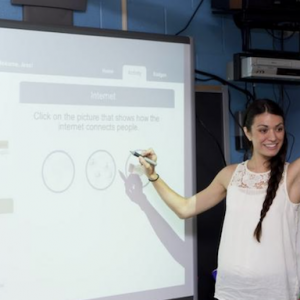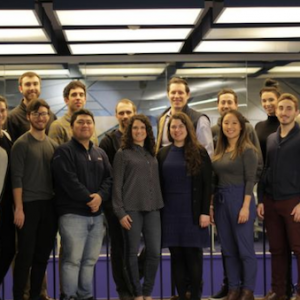Binto: Women-focused Start-up Birthed From Wharton
Two years ago, Suzie Welsh was working as a nurse at Penn Medicine’s fertility practice, and female patients kept asking her advice on vitamins, probiotics, and all-organic, non-GMO products they felt comfortable putting in their bodies.
Then, the lightbulb went off.
“There wasn’t one company with health experts in this market space, helping women get the products they need,” including period support, fertility vitamins, probiotics, and supplements for women entering menopause.
“As a nurse, I got questions from patients all the time, and there’s a lot of junk science out there. As consumers, we’re left to figure it all out, and I knew I wanted to make my own product line.”
She approached the Science Center at 37th and Market Streets, which has a space for entrepreneurs, and realized that “I really had no idea how to start a company.” She was also pursuing a master’s degree in health administration at the University of Pennsylvania, and got an email one day about a program for nursing and medical school students at the Wharton Business School. She applied with a vague business plan.
At Wharton’s entrepreneurship program, “I built Binto there. The program culminated in a pitch day. We got funding out of that pitch day in April 2016. I left my job when I graduated, and I went full-steam ahead. That Wharton program gave me the mentorship and push I needed to say, ‘I’ve got something cool here. I love it.’ ”
Binto’s website prompts women to a question-and-answer about their health needs, then on to products: What brand of vitamins do I need? Is organic always the best?
For women facing menopause, “we’re piloting that right now. That’s our big ‘ask,’ women needing menopause support. We never do any sort of medicinal herbs that mimic a hormone, or use a hormone. We really are here to be supportive, and if you really need HRT (hormone replacement therapy), then go to the doctor. But what we can do is bone and joint support, osteo supplements, libido products, mood and depression, which is another big piece of menopause.”
Read the full article here.





